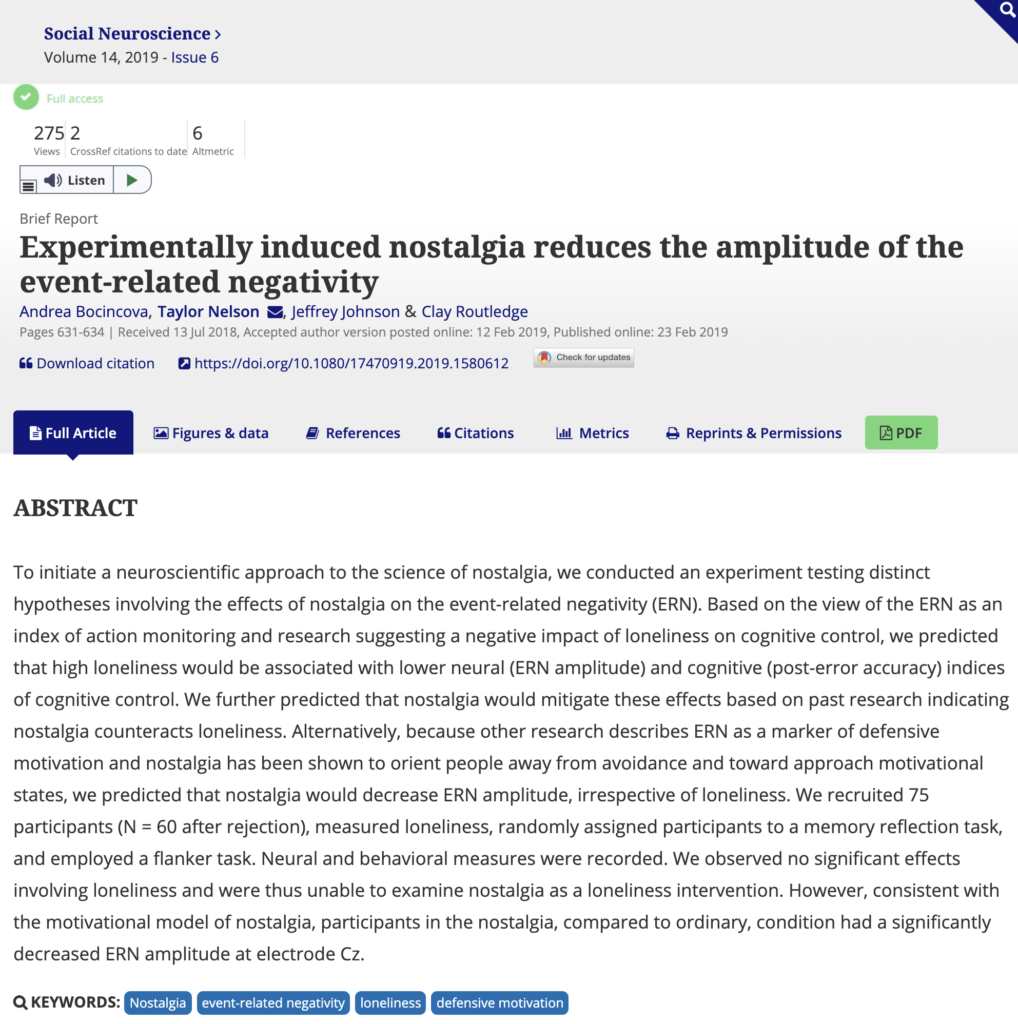To initiate a neuroscientific approach to the science of nostalgia, we conducted an experiment testing distinct hypotheses involving the effects of nostalgia on the event-related negativity (ERN). Based on the view of the ERN as an index of action monitoring and research suggesting a negative impact of loneliness on cognitive control, we predicted that high loneliness would be associated with lower neural (ERN amplitude) and cognitive (post-error accuracy) indices of cognitive control. We further predicted that nostalgia would mitigate these effects based on past research indicating nostalgia counteracts loneliness. Alternatively, because other research describes ERN as a marker of defensive motivation and nostalgia has been shown to orient people away from avoidance and toward approach motivational states, we predicted that nostalgia would decrease ERN amplitude, irrespective of loneliness. We recruited 75 participants (N = 60 after rejection), measured loneliness, randomly assigned participants to a memory reflection task, and employed a flanker task. Neural and behavioral measures were recorded. We observed no significant effects involving loneliness and were thus unable to examine nostalgia as a loneliness intervention. However, consistent with the motivational model of nostalgia, participants in the nostalgia, compared to ordinary, condition had a significantly decreased ERN amplitude at electrode Cz.
